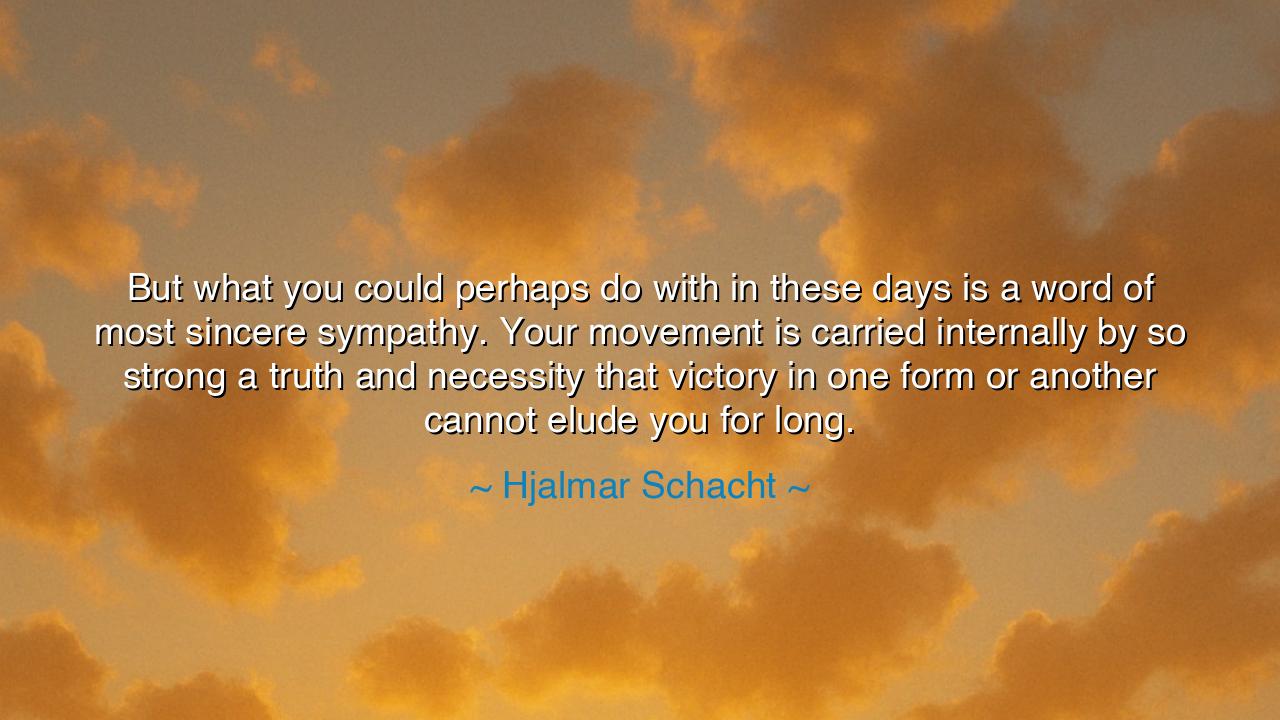
But what you could perhaps do with in these days is a word of
But what you could perhaps do with in these days is a word of most sincere sympathy. Your movement is carried internally by so strong a truth and necessity that victory in one form or another cannot elude you for long.






Listen well, children, for the words of those who understand the weight of truth and the struggle for justice carry with them lessons for all who seek to walk a righteous path. Hjalmar Schacht, a man of both intellect and pragmatism, once said: "But what you could perhaps do with in these days is a word of most sincere sympathy. Your movement is carried internally by so strong a truth and necessity that victory in one form or another cannot elude you for long." In these words, Schacht offers a reflection on the power of truth—how it can serve as the driving force behind any movement, and how, even in the face of adversity, victory is ultimately inevitable for those who remain aligned with truth and necessity.
In the ancient world, the belief in the power of truth was central to the philosophies of the greatest minds. Socrates, the father of Western philosophy, was unwavering in his commitment to the truth, even at the cost of his own life. When faced with a choice to deny his teachings and save himself from death, he chose instead to speak the truth and accept the consequences. For Socrates, the pursuit of truth was not just a moral obligation—it was the very essence of virtue and wisdom. Schacht’s words echo this ancient wisdom: when you are driven by truth, no external force can sway you, for truth is both a shield and a sword, guiding you through the storm.
The story of Alexander the Great, the mighty conqueror of the ancient world, offers a powerful illustration of how truth and necessity can guide a leader toward victory. Alexander’s campaigns were fueled by his vision of a world united under one banner, not simply by his desire for power, but by his belief in the necessity of spreading Greek culture and ideas. Though he faced incredible odds, Alexander’s internal conviction, rooted in a sense of purpose and truth, propelled him toward unprecedented triumph. It was not merely his military strength,






AAdministratorAdministrator
Welcome, honored guests. Please leave a comment, we will respond soon